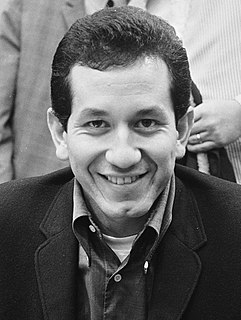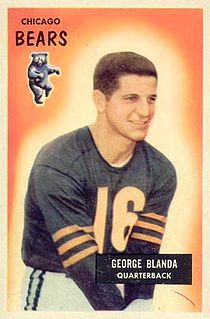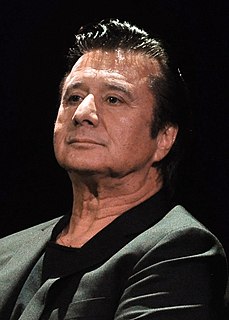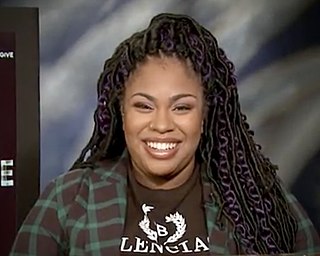A Quote by Frank Sinatra, Jr.
Frank Sinatra was very devoted to what it was he did. At the end of his life, what he had left - there have been accolades, mementos, festivals, superlatives, all that stuff. He's done movies, TV, done this, done that - what he had left was a love of his audience, and that kept him alive.
Related Quotes
By the end of Pop's life I wanted to give something back and when I came on board as his musical director he needed me. I wasn't the greatest conductor of the orchestra, but I was hired to conduct Frank Sinatra. He was slowing down, his memory wasn't what it had been. But his audience never stopped loving him. He had teleprompters.
We do not always remember the things that do no credit to us. We justify them, cover them in bright lies or with the thick dust of forgetfulness. All of the things that Shadow had done in his life of which he was not proud, all the things he wished he had done otherwise or left undone, came at him then in a swirling storm of guilt and regret and shame, and he had nowhere to hide from them. He was as naked and as open as a corpse on a table, and dark Anubis the jackal god was his prosector and his prosecutor and his persecutor.
When I came on board, it was halfway through his [Frank Sinatra] 72nd year, and when he did his last show he was gaining on 80. He knew it, the audience knew it, and there was never any attempt to conceal such a thing. His vision wasn't what it had once been. His hearing wasn't. His memory was fading. He knew these things. He was very much in need of help, and I was so happy to be able, in a small way, to render that help.
When Christ was about to leave the world, He made His will. His soul He committed to His father; His body He bequeathed to Joseph to be decently interred; His clothes fell to the soldiers; His mother He left to the care of John; but what should He leave to His poor disciples that had left all for Him? Silver and gold He had none; but He left them that which was infinitely better, His peace.
Her first reaction was one of hope, because his eyes were open and shining with a radiant light she had never seen there before. She prayed to God to give him at least a moment so that he would not go without knowing how much she had love him despite all their doubts, and she felt an irresistible longing to begin life with him over again so that they could say what they had left unsaid and do everything right that they had done badly in the past. But she had to give in to the intransigence of death. (Love in the Time of Cholera)
No thoughtful man ever came to the end of his life, and had time and a little space of calm from which to look back upon it, who did not know and acknowledge that it was what he had done unselfishly and for others, and nothing else, that satisfied him in the retrospect, and made him feel that he had played the man.
Well. There was noting to be done for it. Things had happened as they did, time's arrow had yet to be reversed by humans, done was done. If a man spent his life looking over his shoulder at every possible branching of his path he could have taken, he would never accomplish anything. One must learn from history so as not to repeat it, but one must not waste one's energy or time worrying about what might have been. Sorry . . . but people die every day and the galaxy continues on quite well without them. Consider yourself lucky you are one of those as yet unselected by the Fates.
What in the world had Grover Cleveland done? Will you tell me? You give it up? I have been looking for six weeks for a Democrat who could tell me what Cleveland has done for the good of his country and for the benefit of the people, but I have not found him.... He says himself...that two-thirds of his time has been uselessly spent with Democrats who want office.... Now he has been so occupied in that way that he has not done anything else.
Was his life nothing? Had he nothing to show, no work? He did not count his work, anyone could have done it. What had he known, but the long, marital embrace with his wife. Curious, that this was what his life amounted to! At any rate, it was something, it was eternal. He would say so to anybody, and be proud of it. He lay with his wife in his arms, and she was still his fulfillment, just the same as ever. And that was the be-all and the end-all. Yes, and he was proud of it.
Summerset, don't you ever sleep?" "It's Lieutenant Dallas. She's--" Roarke dropped his briefcase, grabbed Summerset by the lapels. "Has she been hurt? Where is she?" "A nightmare. She was screaming." Summerset lost his usual composure and dragged a hand over his hair. "She won't cooperate. I was about to call your doctor. I left her in her private suite." As Roarke pushed him aside, Summerset grabbed his arm. "Roarke, you should have told me what had been done to her." Roarke merely shook his head and kept going. "I'll take care of her.
From this outer edge of his life, looking back, there was only one remorse, and that was only that he wished to go on living. Did all dying people feel this way, as if they had never lived? Did life seem that short, indeed, over and done before you took a breath? Did it seem this abrupt and impossible to everyone, or only to himself, here, now, with a few hours left to him for thought and deliberation?

































